To find more about our students, either scroll down the page or click on one of the four priority areas each student's research is located in. The thematic cohorts for 2015 are:
Agriculture and Food Security (FS)
Industrial Biotechnology and Bioenergy (IBB)
Bioscience for Health (BH)
World Class Underpinning Bioscience (WCUB)
***
Agriculture and Food Security (FS)
Morag Clinton (St Andrews)
Project title: Gill health and immunological response in farmed salmonids challenged by noxius plankton
Contact Morag.
Sophie Donovan (Edinburgh)
Project title: Re-engineering photosynthesis: targeted genome editing to replace nuclear-encoded Rubisco in higher plants
Personal note: Hi, I’m currently studying for a PhD student at the University of Edinburgh. My project focuses on the enzyme Rubisco which is responsible for primary CO2 fixation in photosynthetic organisms. In crops such as wheat and rice Rubisco is inefficient, which limits photosynthetic productivity and plant growth. Our aim is to engineer an improved Rubisco that will enhance photosynthesis in plants using the CRISPR-cas9 gene editing system. Ultimately it is hoped that this work will advance strategies for Rubisco engineering to increase crop yields. Previously I studied for my undergraduate degree at the University of Essex where I worked with molecular and plant physiology research groups. Outside of the lab I enjoy hiking, climbing and also watching films.
Honours/prizes:
Royal Society of Biology Top Student Award (2014/15) – for the highest overall mark achieved on a biology-based degree.
The John Shire Prize for Biology (2014/15) – for the highest final year mark awarded on BSc Biological Science.
Contact Sophie.
 Jacob Hargreaves (Aberdeen)
Jacob Hargreaves (Aberdeen)
Project title: The Dynamics of Endemic Fungal and Oomycete Biodiversity and Ecology in Response to the Reindeer-Culling Programme in South Georgia
Personal note: Hi! I am a PhD student at Aberdeen University, working in the Institute of Medical Sciences. My project involves sampling the soil of the Falklands and South Georgia, to investigate the fungal community composition and diversity in response to the introduction, and now, eradication of the non-native reindeer. To carry this out I intend to use targeted metagenomics to sequence the ITS regions of the soil communities. I will also be sampling on South Georgia for oomycetes and carrying out morphological and infectivity studies. Previously I studied at Aberystwyth University, achieving a BSc (Hons) in Microbiology. My project is carried out in association with EASTBIO BBSRC DTP, with co-funding from SAERI and South Georgia.
Contact Jacob.
Maiju Laurila (Dundee)
Project title: New regulatory mechanisms in the plant-pathogen arms race
Contact Maiju.
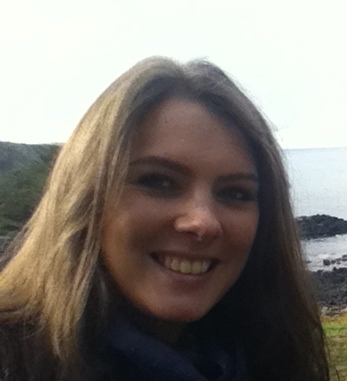 Aoife Leonard (Aberdeen)
Aoife Leonard (Aberdeen)
Project title: Niche evolution in a warming world
Personal note: I am an ecology PhD student at the University of Aberdeen. As part of my project I will investigate how shifts in a species’ resource use traits, climate tolerances, and dispersal abilities contribute to niche evolution. This study employs experimental evolution in the model organism Callosobruchus maculatus to identify the constraints and consequences of these rapid evolutionary changes. Prior to this, I completed my MSc in Ecology and Conservation at Queens University Belfast and my BSc Hons Marine Biology from the University of Liverpool.
Contact Aoife.
Amy Molotoks (Aberdeen)
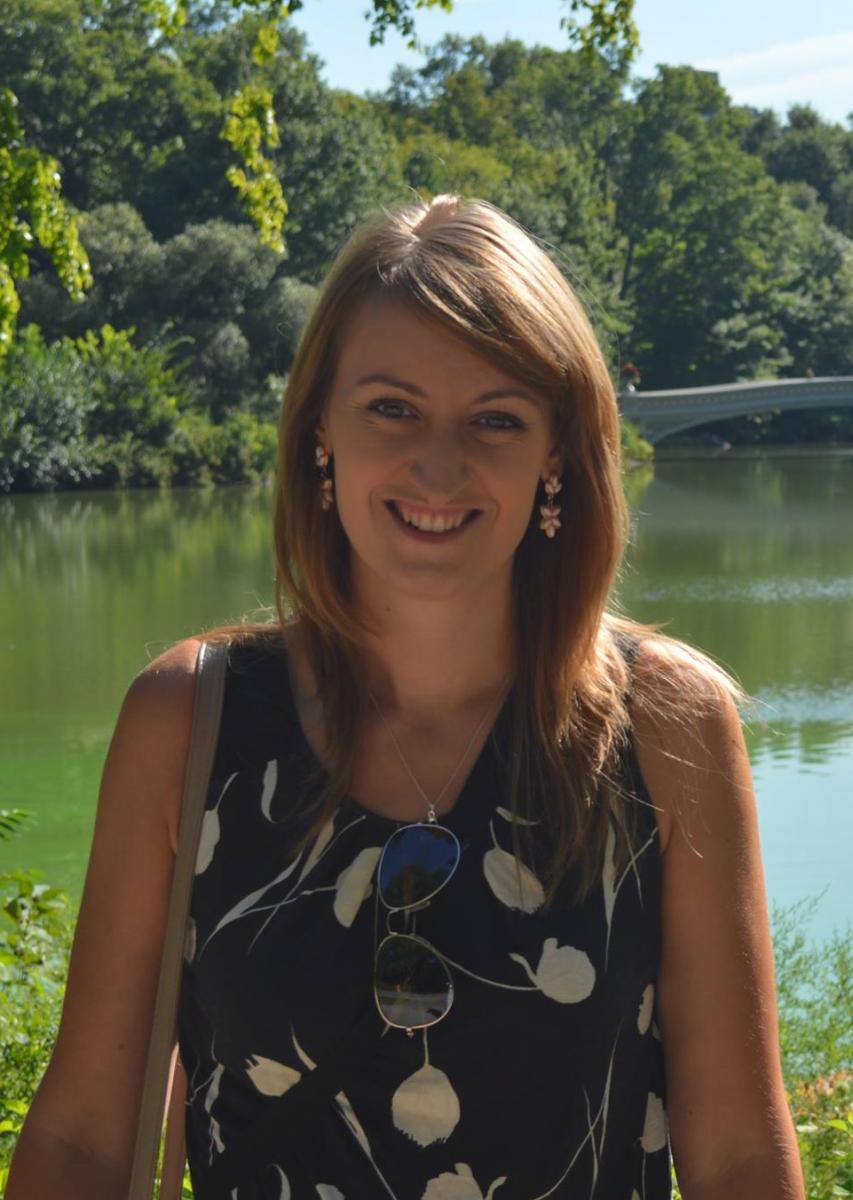 Project title: The consequences of delivering food security on other ecosystem services
Project title: The consequences of delivering food security on other ecosystem services
Personal note: Hi! I am a PhD student at the University of Aberdeen and my project falls under the research theme of food security. My research involves modelling a range of future food security scenarios including sustainable intensification, redistribution and trade, changing diets and reduced waste and examining the impacts on land use change. Furthermore, I will be looking at the subsequent effects of land use change on ecosystem services, focusing on those associated with biodiversity. The project will exploit high resolution, spatially resolved datasets of crop yields, land cover and livestock distributions as well as using statistics provided by the FAO to inform global food system models. This is in order to assess and identify possible future strategies of sustainably delivering food security.
Prior to my PhD, I completed a BSc in Environmental Sciences with the University of Southampton and an MSc in Biodiversity and Conservation with the University of Exeter. I also undertook a research internship with the Eden Project and took part in an Erasmus programme in Portugal for 9 months working for an environmental conservation organisation.
Contact Amy.
Benjamin Moore (Edinburgh)
Project title: Derivation of bovine macrophages from induced pluripotent stem cells as a novel tool for understanding host-pathogen interactions
Contact Ben.
Emily Parr (Edinburgh)
Project title: Molecular characterisation of bacterium-macrophage interactions: immune evasion, host-specificity and therapeutic potential
Emily is student rep for Edinburgh and you could check his profile here.
Contact Emily.
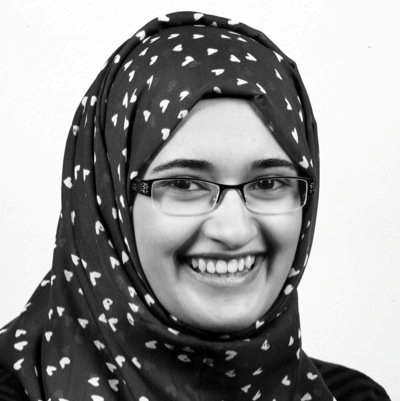 Fatima Ulhuq (Dundee)
Fatima Ulhuq (Dundee)
Project title: Characterisation of a novel Type VII secretion substrate from Staphylococcus aureus
Personal note: Hi! I’m Fatima and I am currently studying for my PhD at the University of Dundee in the division of Molecular Microbiology. My project focusses on the structural and functional analysis of a novel secreted protein of the Type VII protein secretion system in Staphylococcus aureus. S. aureus is a leading cause of community and hospital acquired infections and is associated with life threatening diseases such as pneumonia, meningitis, endocarditis and sepsis. In addition to being an opportunistic human pathogen, S. aureus is also one of the most important worldwide cause of mastitis in cattle. The Type VII protein secretion system and its secreted proteins in S. aureus have shown to play a significant role in long term persistence of staphylococcal abscesses, nasal colonization and virulence in the murine pneumonia model. Before starting my PhD I studied Pharmacology and Physiological Sciences here at the University of Dundee and was involved in the 2014 Dundee iGEM Team. In my spare time I enjoy baking, playing sports like football and socializing with friends.
Contact Fatima.
Industrial Biotechnology and Bioenergy (IBB)
Svetlozara Chobanova (Aberdeen)
Project title: Synthetic Biology: Generating an Orthogonal Translation Compartment in Yeast
Ara is student rep for Aberdeen and you could check his profile here.
Contact Ara.
Michael McDonald (Edinburgh)
Project title: Using synthetic ecology to optimise methanogenic consortia for anaerobic digestion
Contact Michael.
Paul James Rouse (Edinburgh)
Project title: Application of Tissue Engineering Techniques to Develop an in vitro Thymus
Personal note: I have just begun my PhD in the Blackburn group at the MRC, Scottish Centre for Regenerative Medicine. Specifically, my project is entitled: ‘Application of Tissue Engineering Techniques to Develop an in vitro Thymus’. Justification for my project came from a recent Blackburn publication in which the group reprogrammed mouse embryonic fibroblasts with enforced Foxn1 expression and found the cells developed thymic epithelial cell traits, these cells are called iTEC. Furthermore, functional analysis of iTEC found they were able to develop into a functioning thymus when engrafted into athymic mouse models. My role is to upscale this process and produce an in vitro thymus, which can be used as an autologous transplantation option. I aspire to achieve this by optimising the biochemical and biomechanical qualities of the three-dimensional culture conditions to facilitate thymic tissues natural affinity for self-organisation.
Contact Paul.
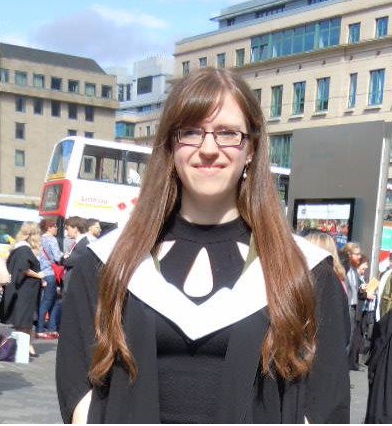 Sally Vanden-Hehir (Edinburgh)
Sally Vanden-Hehir (Edinburgh)
Project title: New Tools for Visualising Healthy Remyelination
Personal note: I graduated with a Master of Chemistry degree from The University of Edinburgh in June 2015 and in September 2015 I joined Dr Alison Hulme’s group at Edinburgh as a PhD student funded by the Eastbio DTP. My research to synthesise nanoparticles from the biodegradable polymer poly(lactide-co-glycolide) that can then be loaded with therapeutic drugs to target their delivery in vivo. Specifically, I will be looking at the targeted delivery of therapeutics for multiple sclerosis as this project is co-supervised by Dr Anna Williams at the Scottish Centre for Regenerative Medicine. I will introduce a biorthogonal carbon-deuterium label to the polymer so that the nanoparticles can be imaged by Raman spectroscopy in vivo.
Contact Sally.
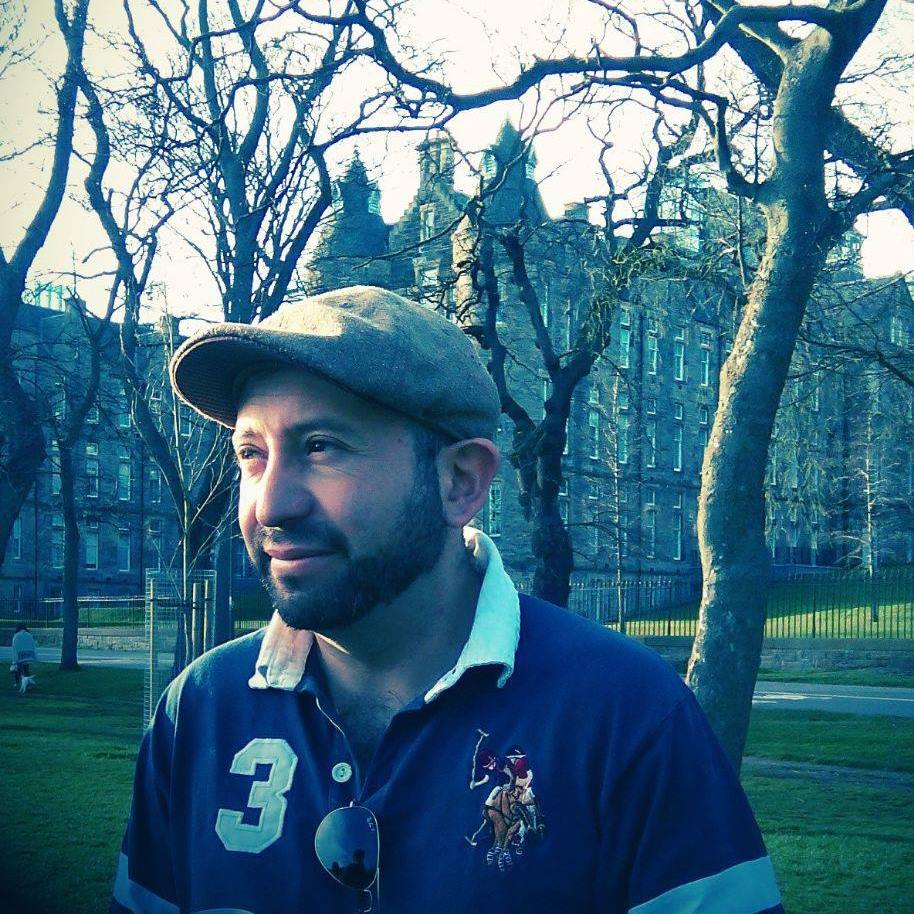 Efrain Zarazua-Arvizu (Edinburgh)
Efrain Zarazua-Arvizu (Edinburgh)
Project title: Engineering thermostable protein nanocompartments for protein production and enhanced enzyme activity
Personal note: Currently studying for a PhD in Molecular and Structural Biology at the Institute of Quantitative Biology, Biochemistry and Biotechnology, The University of Edinburgh. Interested in the usage of Synthetic Biology tools to develop modular systems based in bacterial micro-compartments to explore its potential to produce high value compounds and scaffolds for industrial biotechnology and nano-technology. I previously studied an MSc Synthetic Biology and Biotechnology, The University of Edinburgh. Focused in the understanding of inducible genetic responses of cells triggered by mechanical compression. My BSc was in Biotechnology from Autonomous University of Querétaro (Mexico). Where I discovered some penchant for scientific research and development. I Developed also some entrepreneurship skills by participating and obtaining the 4th place in the national competition “Entrepreneurs ANUIES-SEP-2011 SE" with the project "Biofunctional-organic food”, and as finalist in the Latin-American competition "Intel Challenge" with the business project "Biotechnological Innovation INNOB” in Mexico City.
Contact Efrain.
Bioscience for Health (BH)
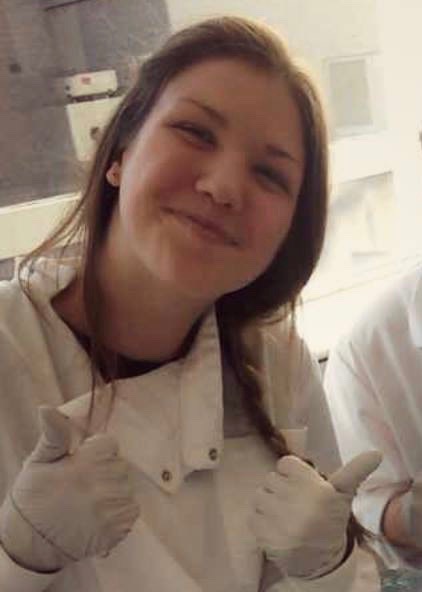 Eloise Ballard (Aberdeen)
Eloise Ballard (Aberdeen)
Project title: Molecular dynamics of resistance and persistence of Aspergillus fumigatus
Personal note: Hi there! I’m Eloise, a PhD student in the Aberdeen fungal group at the University of Aberdeen. My project is focused on the molecular mechanisms of resistance and persistence of Aspergillus fumigatus. A. fumigatus is an environmental fungus responsible for a spectrum of diseases in the human lung.
Prior to this project, I studied at the University of St Andrews, where I gained my BSc in Biochemistry. I also completed a 3 month long internship within the Division of Infection and Immunity at UCL. Outside of the lab I enjoy hiking, baking, yoga and Netflix!
Contact Eloise.
Benedetta Carbone (Edinburgh)
Project title: Acceleration of neural maturation in vitro to generate fully functional human neurons
Personal note: I am a PhD student in Regenerative Medicine at the University of Edinburgh. I got my BSc. Hons. in Molecular Genetics at the University of Edinburgh in June 2015, and in September 2015 I started my PhD in the lab of Dr. Keisuke Kaji at the Scottish Centre for Regenerative Medicine. The lab focuses on characterising and improving the biological mechanisms of reprogramming terminally differentiated cells into induced pluripotent stem cells (iPSC). They've recently discovered that modulating the TGF-Beta signalling pathway can greatly accelerate cell identity transitions - including fibroblast to iPSCs reprogramming and fibroblast to neuron transdifferentiation.
My second supervisor is Dr. Tilo Kunath. His work focuses on understanding the mechanisms of degeneration of dopaminergic neurons in Parkinson's disease, and using this information to identify potential therapeutic approaches.
In Parkinson's disease, dopaminergic neurons of the substantia nigra are progressively lost. The idea of transplanting new dopaminergic neurons as a therapeutic strategy has been around for a few decades, but the first clinical trials were unsuccessful. We now have well established protocols to produce highly pure dopaminergic neurons in vitro, but the maturation process - both in vitro and in in vivo rat models - still takes quite long.
This is were my project fits in: based on the data from the Kaji lab, I will try to accelerate the maturation of human embryonic stem cells to dopaminergic neurons by modulating the TGF-Beta signalling pathway. The final goal is to achieve faster maturation of neurons in vivo in rat models of Parkinson's disease and to observe faster recovery of symptoms in transplanted rats.
Contact Benedetta.
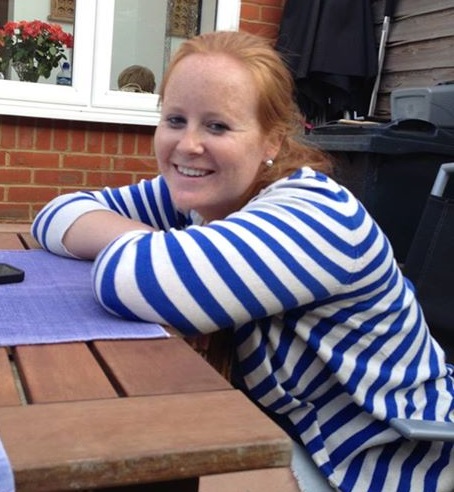 Sophie Edwards (St Andrews)
Sophie Edwards (St Andrews)
Project title: Physical cognition and nest building in birds
Personal note: I am interested in cognition and animal behaviour and for my PhD I will be researching nest building in zebra finches. I will be looking at how they adapt their nests in response to changes in the climate, and the regions of the brain that are involved in nest construction and adaptation. I am co-supervised by Susan Healy at University of St Andrews and Simone Meddle at the Roslin Institute, University of Edinburgh.
Contact Sophie.
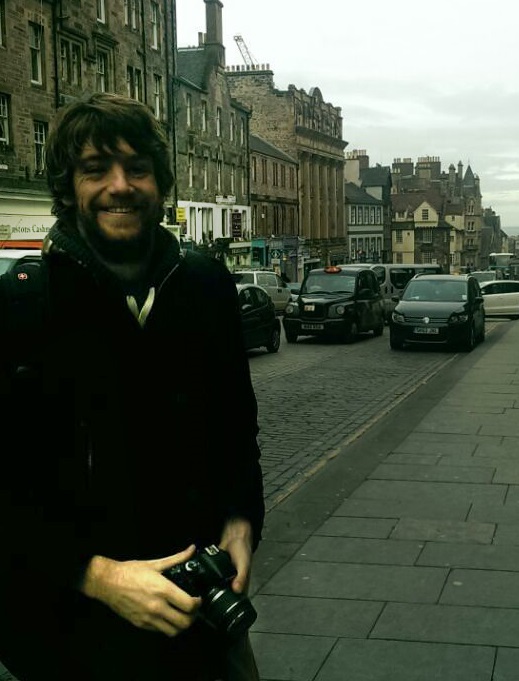 Richard Hassall (Aberdeen)
Richard Hassall (Aberdeen)
Project title: Understanding the generation and dynamics of Bartonella diversity in fragmented host populations
Personal note: I am a PhD student in the School of Biological Sciences at the University of Aberdeen. My project will use water vole metapopulations to explore the diversity of bacteria from the genus Bartonella, a group of hemoparasites that infect a wide range of host species including humans. I will be using this model system to investigate the processes that influence the genetic diversity of pathogens in fragmented host populations. Outside of my PhD I enjoy photography, music, walking and also have a big interest in natural history.
Contact Richard.
Stephanie Laba (Dundee)
Project title: Mapping of the signalling pathways required for anti-fungal responses using global proteomics
Personal note: I work within the Cell Signalling and Immunology division at the University of Dundee. My project focuses on mapping the signalling pathways required in the anti-fungal response in macrophages.
Opportunistic and invasive fungal infections represent an increasing problem; while uncommon in healthy individuals, immunocompromised patients are susceptible to fungal pathogens. For these patients, invasive fungal infection represents a major cause of death. Despite the major impact of fungal infections, our understanding of how the immune system combats fungal pathogens is incomplete.
I will use global phospho-proteomics to examine signalling pathways activated in macrophages in response to Candida albicans. To examine the functional significance of pathways activated, further studies will address the roles of selected proteins in cytokine production and phagocytosis in response to Candida albicans.
These studies will increase understanding of anti-fungal responses and identify new pathways used by macrophages to combat fungal pathogens.
Contact Stephanie.
Abigail Lee (St Andrews)
Project title: Visual Processing of 3D motion
Personal note: I am a PhD student within EASTBIO’s Bioscience for Health stream based in the University of St. Andrews’ School of Psychology and Neuroscience. I completed my undergraduate degree in Biological Sciences at the University of Leicester, during which time I also worked on a self-motion perception project at the Ludwig-Maximilians-University in Munich. This sparked my interest in the visual motion perception in humans. My PhD project is investigating how we see objects approaching us in three dimensions. Objects directly approaching an observer deliver a rapid expansion on the retina. This source of 3D information is known as looming. However, we can also use other visual cues, such as changes in binocular disparity, to perceive approaching motion. My aim is to understand how changes in binocular disparity and looming cues combine and what processing networks underlie their perception.
Contact Abigail.
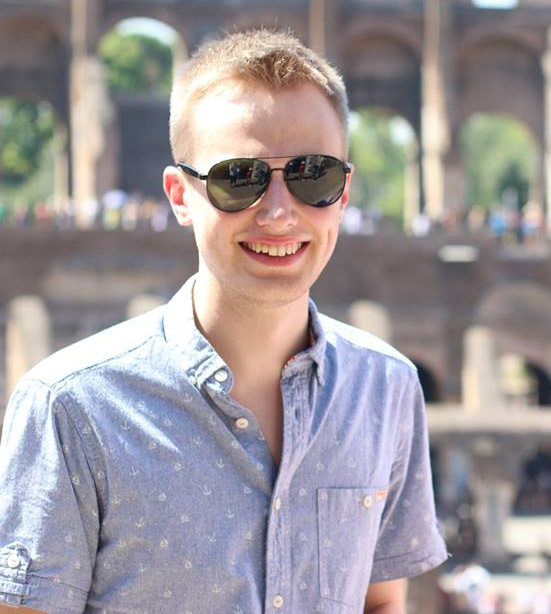 Alasdair Leeson-Payne (Aberdeen)
Alasdair Leeson-Payne (Aberdeen)
Project title: The role of a novel cold signalling mechanism in energy expenditure
Personal note: I am based at the Rowett Institute of Nutrition and Health at the University of Aberdeen. My PhD project is focused on the investigation of cold-induced non-shivering thermogenesis. This is the process by which energy is emitted from adipocyte (fat) cells in the form of heat. The overarching aim of the research is to identify new targets for the treatment of obesity. My research mainly focuses on investigating the mechanisms behind temperature sensing and thermogenesis in adipocytes. Before starting my PhD I completed a BSc (Hons) in Neuroscience with Psychology (with options in BioBusiness) at the University of Aberdeen.
Contact Alasdair.
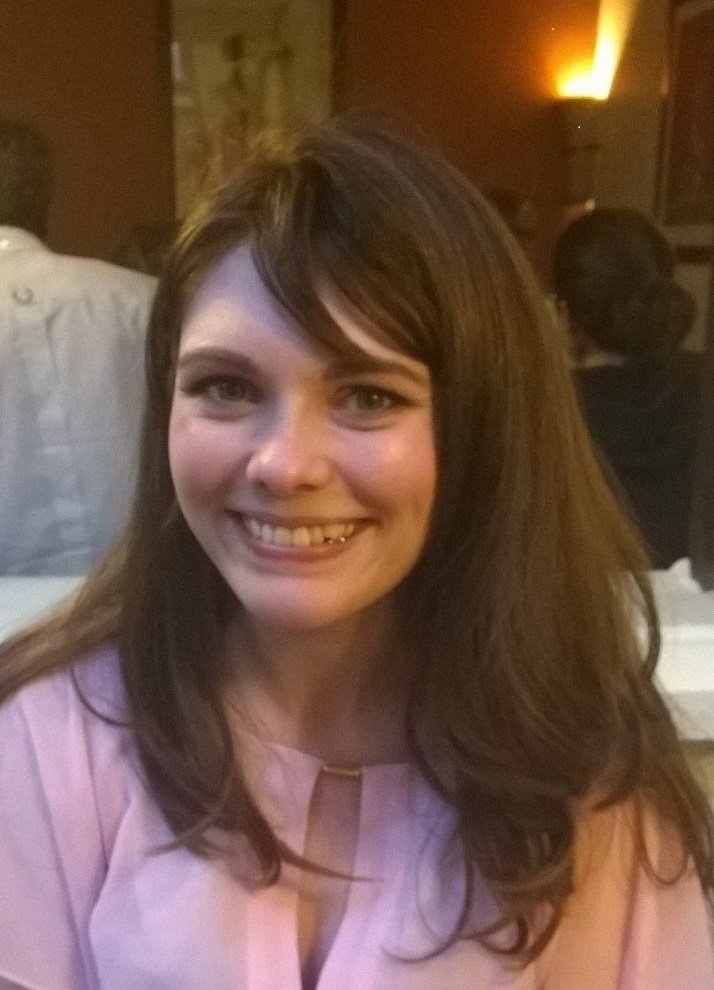 Georgia Longmoor (Edinburgh)
Georgia Longmoor (Edinburgh)
Project title: Consequences of early life stress on social behaviour and the reproductive system in birds
Personal note: Hi! I’m Georgia, I’m a PhD student based between the Roslin Institute at the University of Edinburgh and the University of St. Andrews, in the ‘Bioscience for health’ priority area. The aim of my project is to investigate the consequences of early life stress on social behaviour and reproduction in birds, particularly the Japanese quail. I’m interested in the hypothesis that early life stress may have adaptive rather than adverse consequences. During my PhD I will test this idea by manipulating stress at different sensitive developmental time points, and measuring the effects this has on the brain, physiology and behaviour of the animal at a later point in time.
Contact Georgia.
Oscar Maclean (Edinburgh)
Project title: Gene and genome evolution in malaria parasites(Plasmodium species)
Oscar is a student representative for UoE-based EASTBIO students; you can check his profile here.
Contact Oscar.
Sarah Morson (Edinburgh)
Project title: How do carbohydrates instruct brain development
Contact Sarah.
World Class Underpinning Bioscience (WCUB)
Emily Fowler (Edinburgh)
Project title: A new method to comprehensively map mammalian origins of replication, Molecular control of replication timing in mammalian cells
Contact Emily.
Selma Gulyurtlu (St Andrews)
Project title: Ultra-structural and dynamic analyses of the sub-cellular organisation of messenger RNA biology
Selma is student rep for St Andrews and you could check his profile here.
Contact Selma.
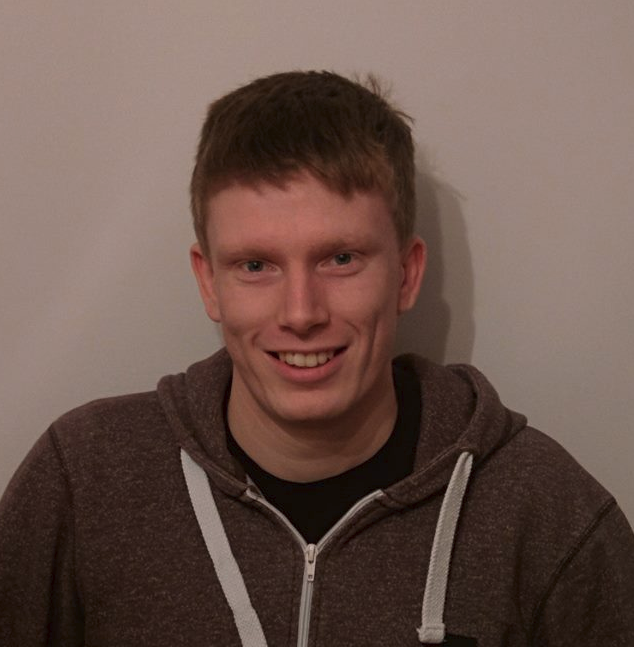 Dario Miroli (Edinburgh)
Dario Miroli (Edinburgh)
Project title: Volume regulation and osmotic-shock response in E.coli
Personal note: I graduated in 2015 with a Masters degree in physics from the university of Edinburgh. I am still at Edinburgh university, now as a BBSRC funded PhD student. My project aims to characterise how E.coli changes its size and shape in a number of different growth conditions and environments. I am also interested in the response of cells to osmotic shock and by studying this I hope we can develop a way of controlling gene expression through mechanical forces which could lead to a novel type of biosensor. To investigate both parts of the project I will mainly be developing an integrated microscopy and micro fluidics platform
Cotnact Dario.
 Nicholas Senn (Aberdeen)
Nicholas Senn (Aberdeen)
Project title: Development of Non-invasive Advanced Diffusion Magnetic Resonance Imaging Methods for in vivo Microstructure Profiling
Personal note: I am a PhD student at the Aberdeen Biomedical Imaging Centre, researching as part of the Magnetic Resonance in Vascular and Integrated Physiology (MR VIP) group. In my research I am developing advanced diffusion MRI methods for profiling tissue microstructure for use in bioscience research. I am perusing my research interests in the physics of medical imaging following the completion of a Medical Physics Master’s degree at the University of Sheffield, where I received the Trowbridge Prize for my research dissertation. I am particularly enjoying combining my background in imaging physics to bioscience application.
Contact Nicholas.
Andrew Shaw (Dundee)
Project title: Investigation of regulation and downstream signalling of PINK1 kinase
Contact Andrew.
Greg Sutton (Dundee)
Project title: Genome Scale Decoding of Post-Transcriptional Modulators in African Trypanosomes
Personal note: I study post-transcriptional regulation of gene expression in the African trypanosome, Trypanosoma brucei. My doctoral training partnership is based between the University of Dundee and the University of Edinburgh. Our aim is to screen the T. brucei genome for regulatory elements and assess their roles in the major T. brucei life-cycle stages. We will prioritise interesting regulators that have major roles in trypanosome biology, developmental transitions and virulence for future study.
I completed my undergraduate degree in Applied Biomedical Science at University of the West of Scotland which included a period studying Blood Science at the new Queen Elizabeth University Hospital. I was awarded a scholarship assessing novel inhibitors of Acanthamoeba castellanii and later undertook a project studying gene expression during Acanthamoeba encystment. If you have any questions about my research, please feel free to give me an email.
Contact Greg.
Hamish Todd (Edinburgh)
Project title: Visualization of large protein complexes
Research outputs:
‘Recent Developments in puzzle design and educational software’. In: Proceedings of the third international Constructionism conference. Vienna, pp.624-625. 2014
‘A novel format for scientific educational software’ In: IEEE ! Xplore proceedings of the 7th annual itag conference, 2014
Honours or prizes:
-Best Graduating Student from Computer Science MSc course, University of Warwick, 2013-2014
-Global Rice Science Scholarship, International Rice Research Institute, 2014
Check out this video produced at the International Rice Research Institute.
Contact Hamish.
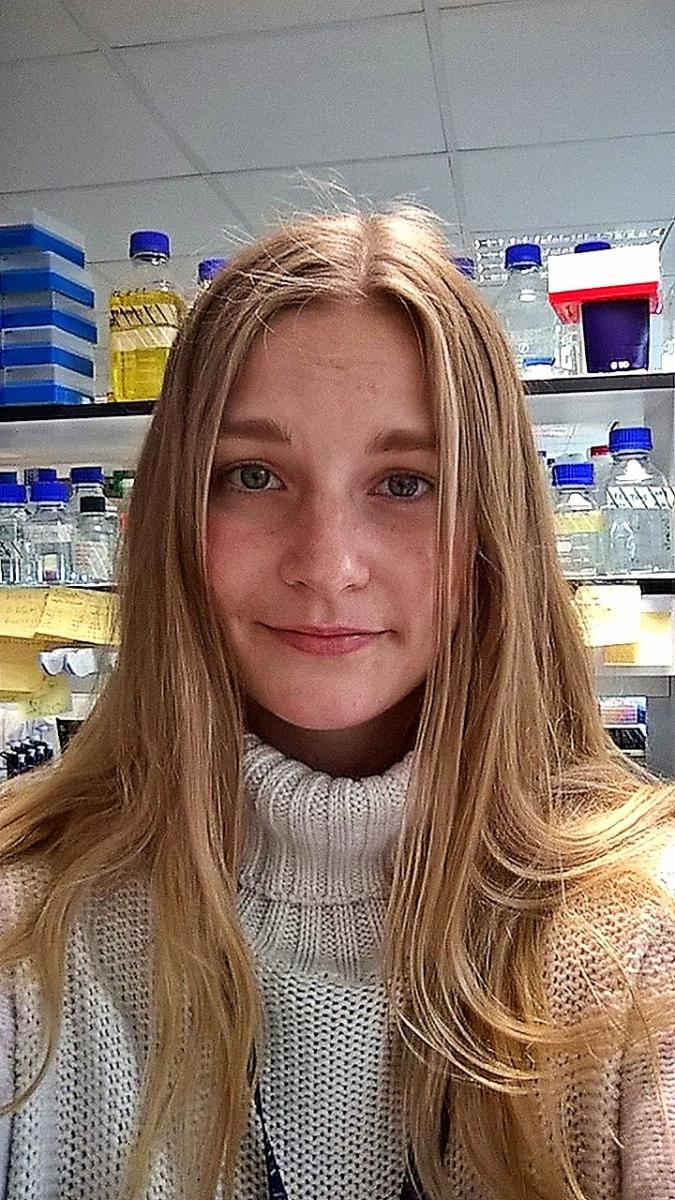 Matilda Toivakka (Edinburgh)
Matilda Toivakka (Edinburgh)
Project title: The role of miRNAs and their targets in CD8 T cell responses
Personal note: I am currently doing my PhD in the Institute of Immunology and Infection Research at the University of Edinburgh. My main research interests lie in the molecular mechanisms of T cell activation and pathology in autoimmunity. My PhD project focuses on how microRNAs influence T cell activation and differentiation. Abnormal regulation of miRNAs can lead to immune pathology and it is important to learn more about their roles in the adaptive immune system. In my project I will attempt to identify miRNAs and their target genes in CD8 T cells which will further our understanding of the signalling pathways that regulate T cell responses in health and disease.
Contact Matilda.











